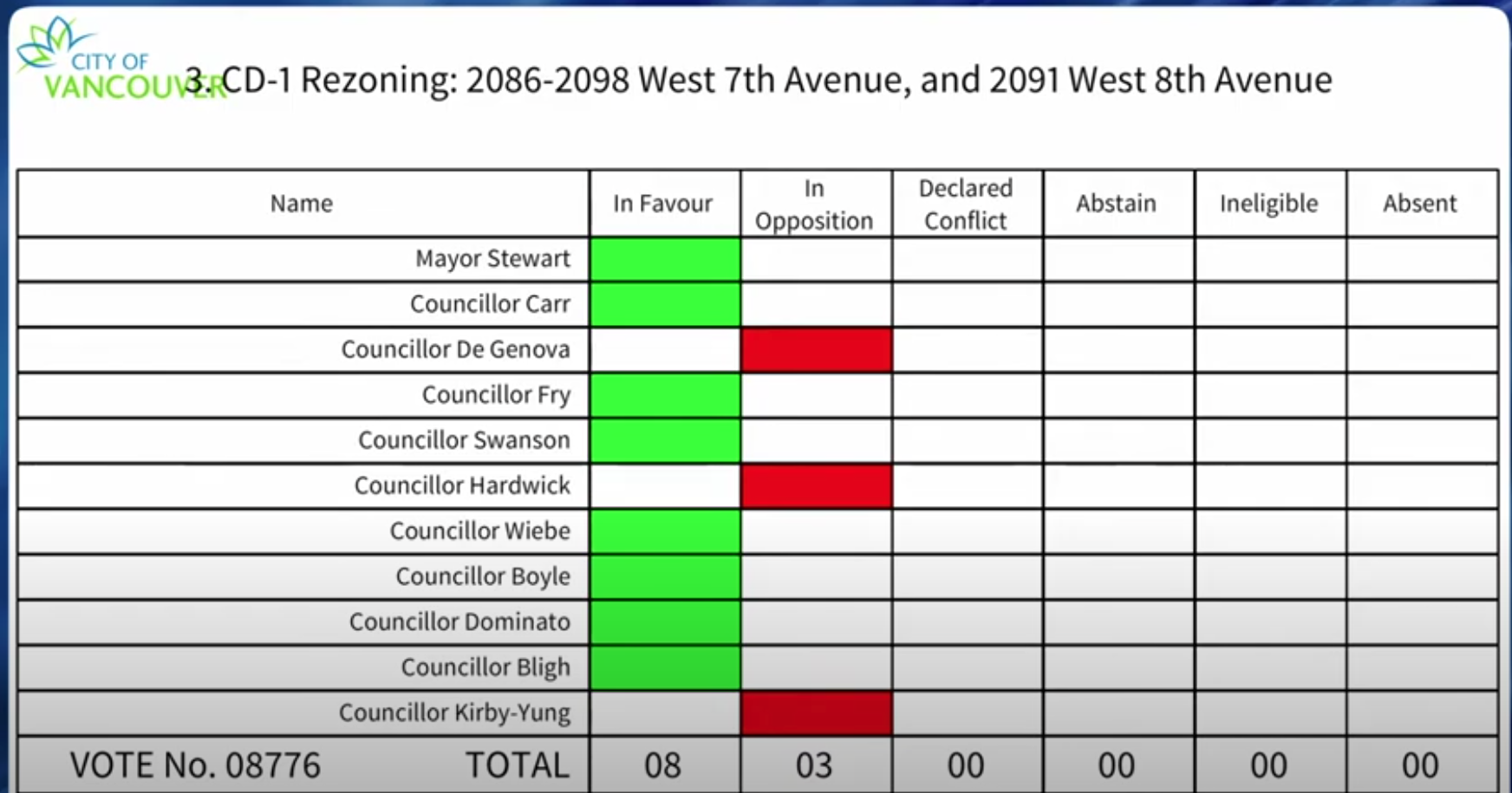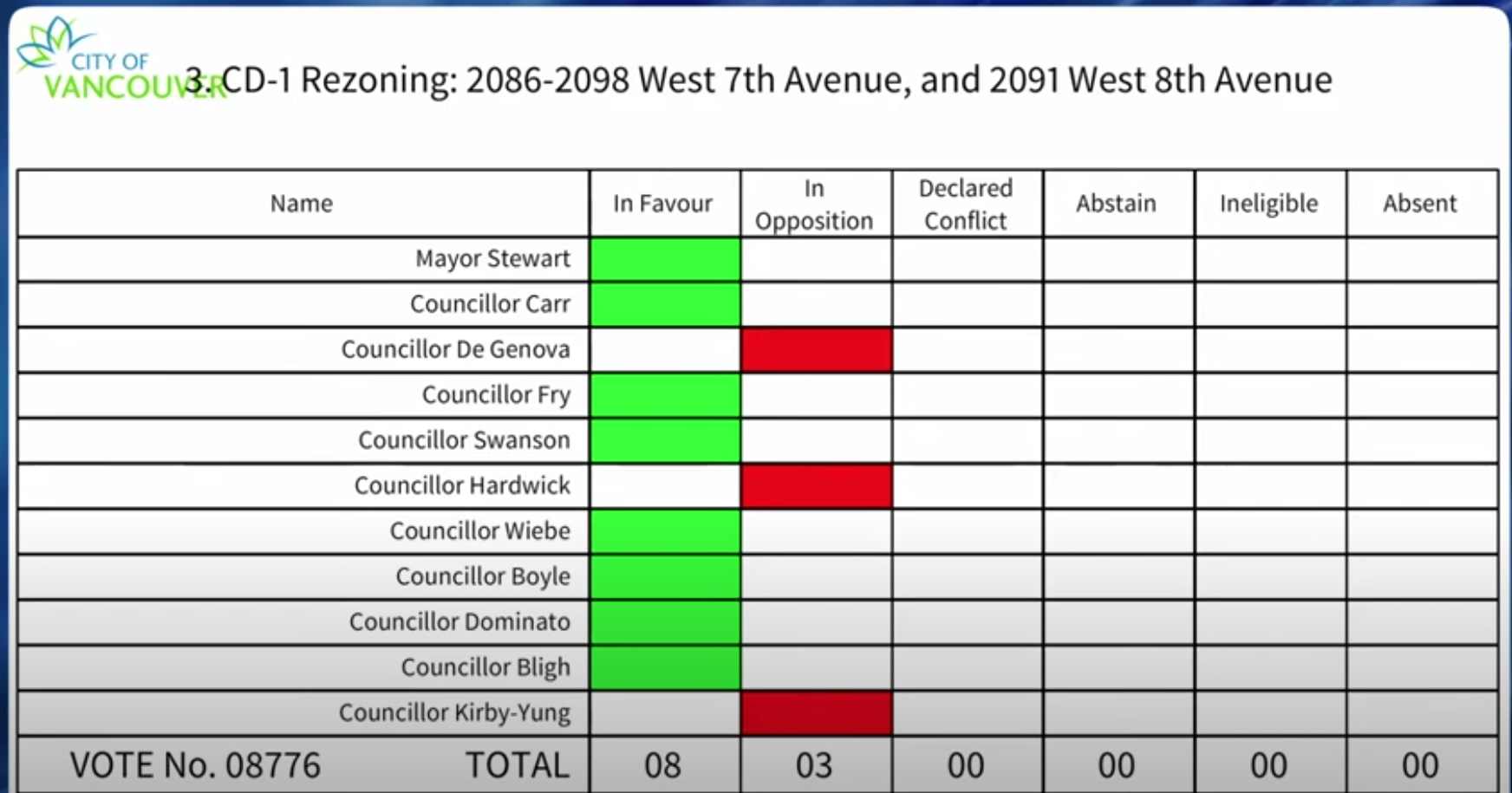At the end of an eventful week, we wanted to provide this update on the final events in the public hearing which wrapped up last week, and some related media updates.
The W7th/W8th & Arbutus rezoning public hearing included over 1561 letters of opposition, as well as a petition of 1422 signatures in opposition, and 295 registered speakers (with 80% of those who spoke in opposition). this public hearing was unprecedented.
The sheer volume of communication was notable including the number of new ideas that tried to elicit dialogue with the Council and much-needed fact-based research provided to the Council and the media, which surpassed the quality and depth of responses from City Staff or BC Housing.
The community and speakers talked about and asked for a better way, and Kitsilano Coalition also provided a
social housing solution developed in collaboration with the community, which could house 149 people versus 129 in the existing proposal. See more below on this presentation from the Kitsilano Coalition.
In spite of all of this, Council voted to approve this rezoning, as per the voting results. The final vote was 8-3 to approve the rezoning.
Councillors opposed to the rezoning application were Councillor Colleen Hardwick, Councillor Melissa De Genova, and Councillor Sarah Kirby-Yung.
We thank these Councillors for their commitment to listening to the community and for their courage to stand up for voters and neighbourhoods. In view of the Councillors who ignored community and speaker feedback (with their weak and unenforceable amendments), the public hearing clearly showed the shortcomings of the existing Council.
It was clear, that for the majority of the existing Councillors:
- There was no will to hear the neighbourhoods and voters. Most Councillors struggled in vain to respond in any measurable way that would suggest they had listened.
- External political pressures and agreements trumped neighbourhood and community feedback. This was indeed a "Done Deal" in spite of the unprecedented engagement. At the end of the day, a lack of political courage took centre stage.
- Community and public well-being and safety simply are not the priority they need to be for the majority of the Council.
It's clear that it is time for a change at the upcoming October 15th Municipal election.
We want to thank all of you for your help in achieving the unprecedented feedback provided, and for all of your time and talent to achieve it.
We also appreciate the large number of people who have been grateful for the effort and have suggested viable options for our next steps, including offers of additional help, after they witnessed what occurred here.
It is clear to us that we need to take further advantage of this opportunity to:
- Engage with the City to ensure that the remaining process is done transparently, and all options are considered in the best interests of the neighbourhood, residents, children and existing vulnerable populations.
- Expand engagement on these issues because of the implications of this decision and this housing program.
- Continue our active research and due diligence on the issues and election candidates to make sure your vote counts on October 15th and to demand much more of our elected Council.
As we consider all options available to us and the most effective options to pursue, we'll continue to update you on our next steps.
In the meantime, please take time to revisit some of the key speakers at the past public hearing. There is much to learn by understanding the voices that Council chose to ignore. Most of all, please stay informed and please continue to engage others.
Public Hearing Highlights
- Kitsilano Coalition Presentation (Cheryl Grant). Shows an alternate "Concept Model" of housing, which could house 149 without rezoning.
- Dr Julian Somers Presentation. Dr. Somers lays out the failures of the proposal, based on scientific research. And he challenges Council to do more.
- Judge Tom Gove. Judge Gove, explains the reality of what is being proposed, based on real-world experience.

